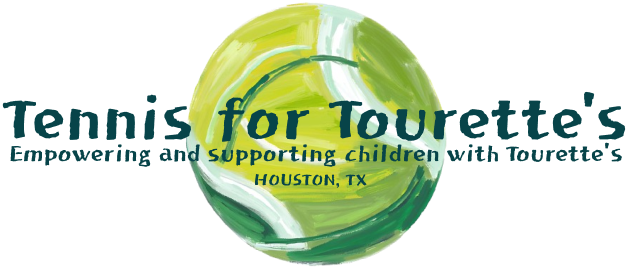Tennis and Tourette’s

1. Physical Activity
Engaging in physical exercise can help reduce the severity of tics in some individuals. The physical exertion and focus required in tennis can act as a form of distraction, potentially leading to fewer or less severe tics.
Why Tennis?
And how can it benefit children with Tourette Syndrome?

2. Skill Development
Tennis helps improve coordination, fine motor skills and hand-eye coordination, which can be beneficial for individuals with Tourette’s who might struggle with motor control.
3. Focus and concentration
The sport demands a high level of concentration and strategic
thinking. This intense focus can sometimes help manage tics by redirecting mental energy towards the game. Teaching children techniques to stay focused can also help them manage their symptoms in other areas of life.
4. Routine and structure
The structured environment of tennis practice and matches can
provide a sense of routine and stability, which can be comforting and beneficial for
individuals with Tourette’s.
5. Social interaction
6. Stress Relief
Physical activity, including tennis, is known to reduce stress and anxiety, which are often associated with an increase in tic severity.
7. Individual Pace
Tennis can be played at various levels of intensity and can be adjusted to suit the needs and abilities of the individual, allowing them to progress at their own pace.
8. Positive Reinforcement
Celebrating achievements and progress in tennis can boost self-
esteem and provide a sense of accomplishment. Positive reinforcement from coaches and
peers helps children build confidence and resilience.
9. Adaptable play
10. Therapeutic environment
Creating a safe and supportive environment on the tennis
court, where children feel comfortable expressing themselves and receiving
encouragement, can enhance their overall well-being.
Support Our Mission
There are many ways to support us!
Volunteer
Interested in helping run a camp or lesson? Get in touch.

